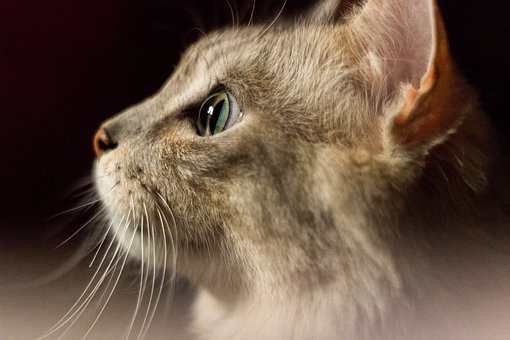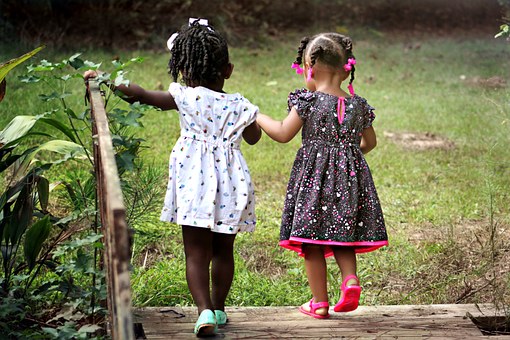Relationships
Have you ever thought about the relationships we have with people around us and how they impact on our lives? Just consider for a moment how we are juggling a huge range of relationships every day…family, friends, acquaintances, colleagues, hairdressers, barbers, the person delivering the post, the traffic warden, our doctor. When you pause to think about it we are interacting with a huge quantity of people each day and most of these interactions pass without us giving any thought to them at all. It’s fascinating when you begin to think about the differences between these interactions because interacting, speaking, making eye contact, making gestures and possibly touching all constitute the relationship you have with another human being. And then, of course these interactions or relationships aren’t limited to other humans. What about the relationships we have with animals or pets?!

Fortunately for us, the majority of interactions or relationships we have on a daily basis are polite, good-natured and positive! But I wonder if we ever put any thought into what makes these relationships positive? What do they all have in common? Is it a sense of politeness drummed into us through the expectations of the society we live in? Of course, I’m not suggesting for a moment that there aren’t elements of conflict in any of these relationships! We are all human (apart from our pets of course) and we are emotional beings. We’re meant to feel a broad range of emotions and that’s as it should be, but fortunately, for the most part, we manage to keep these emotions in check. We self-regulate. What a society we would live in if we didn’t!
In the Early Years
Our ability to interact with others and have positive relationships are, of course founded in our early years of development. As early years practitioners we understand about the importance of self-regulation and the multitude of factors that sadly, for some children, are missing in their early childhood experiences. The need for positive relationships is one of the key elements that underpins all of the work that we do as practitioners in the early years and is a key part of children’s personal, social and emotional development. Take some time to look again at the Development Matters document. Within that, for every age band and area of learning are ideas to prompt the ways in which adults can support children with learning how to develop positive relationships. And of course these aren’t limited to the areas of learning, they also run through the Characteristics of Effective Learning with ideas to support adults working with children to establish and strengthen positive relationships.
By definition…
So what exactly is a ’positive relationship’? In the dictionary ‘positive’ is described with words such as ‘optimistic’, ‘constructive’ or ‘confident’ whilst relationship is described in terms of ‘the way in which two or more things or people are connected’. So we could say a positive relationship is a confident connection? I wonder if it is enough to be not ‘rock the boat’, to simply ‘go with the flow’? I think not. I think the key word mentioned to describe ‘positive’ is ‘constructive’. That, in my mind, implies a naturally thoughtful approach to the relationship, especially the professional relationships that we engage with daily. It gives a suggestion of the effort that needs to be put in for the relationship to be strong and fulfilling. Isn’t that what we’d like from a positive relationship? Of course, there’s a difference between the positive relationship we might have with the person checking our ticket on the train and the child we are nurturing in our care. Clearly, to smile, nod, make eye-contact and a polite ‘thank you’ would suffice on a train, but what more do we need to provide for a small child? Yes! A smile for everyone!! Every day! It is a privilege for us to spend each day with a group of small children! To be engaged in supporting them to learn and develop through positive and purposeful interactions. So each and every one of them needs to know that! Easily done with a broad smile and eye contact – for all.
- Getting down to the child’s level, gaining eye contact, smiling and where relevant nodding are essential non-verbal ways to demonstrate that you are keen to actively listen and positively interact
- Gesture can be be used to help support communication, modelling particular signs for words along with speech can provide less verbal children with ways to express themselves.
- Facing the children as you speak to them and not being distracted ensures you are demonstrating the value you place on the interaction and relationship (harder to achieve, I know, in a busy classroom!!).
Many of the above points are instinctive ways to make a connection, to forge a relationship but we should never underestimate how some of these behaviours can be overlooked in our busy settings, yet we are the role models. It is vital we demonstrate these positive interaction skills consistently remembering combining these with good manners to gain mutual respect. We need to ensure our relationships with children are respectful to model how we would expect them to behave, remember - respect begets respect.
In the Development Matters document, ‘positive relationships’ in an early years setting are described as ones which are:
- ‘Warm and loving, and foster a sense of belonging’ – for the children to know that they are cared about, not just in a practical manner but that they really matter as part of an important group. This is necessary for a society to function well. Whether we are part of a neighbourhood, a club, a sports team. We need to model that sense of belonging to demonstrate to children how they need to behave towards others
- ‘Sensitive and responsive to the children’s needs, feelings and interests’ – Again, in a functional way, if they are hurt or hungry but also on an emotional level. We can’t expect children to respond to others in this way if they are not. The old adage, treat others as you would wish to be treated. Children will learn well if they are settled and confident
- ‘Supportive of the children’s own efforts and independence’ – We all perform well if we know our efforts are valued! Of course children are the same. A wonderful quote from Quortrup Children are beings not becomings. Children are little grownups! Remember they’re the adults of the future. What kind of adults would we like them to be?
- ‘Consistent in setting clear boundaries’ - We all feel secure when we know where we stand. As a society we work well with boundaries – that queue in the supermarket!
- ‘Stimulating’ – encouraging and interesting. Not wall-to-wall noisy entertainment but stimulating the unique child’s interests
A final thought…
Whilst pondering the need for positive relationships in society as a whole, I’m being drawn to our British Values. Treating everyone as an equal, respecting all, surely this embodies how we would like to see our children behave as they grow and forge many more relationships with the hundreds of people they will encounter during their educational career and in different aspects of their future lives?
Well I’ll continue to ponder…whilst attempting to make eye-contact with my cat who’s got his eyes on my fish supper! There’s one positive relationship which is about to become very emotional…!




